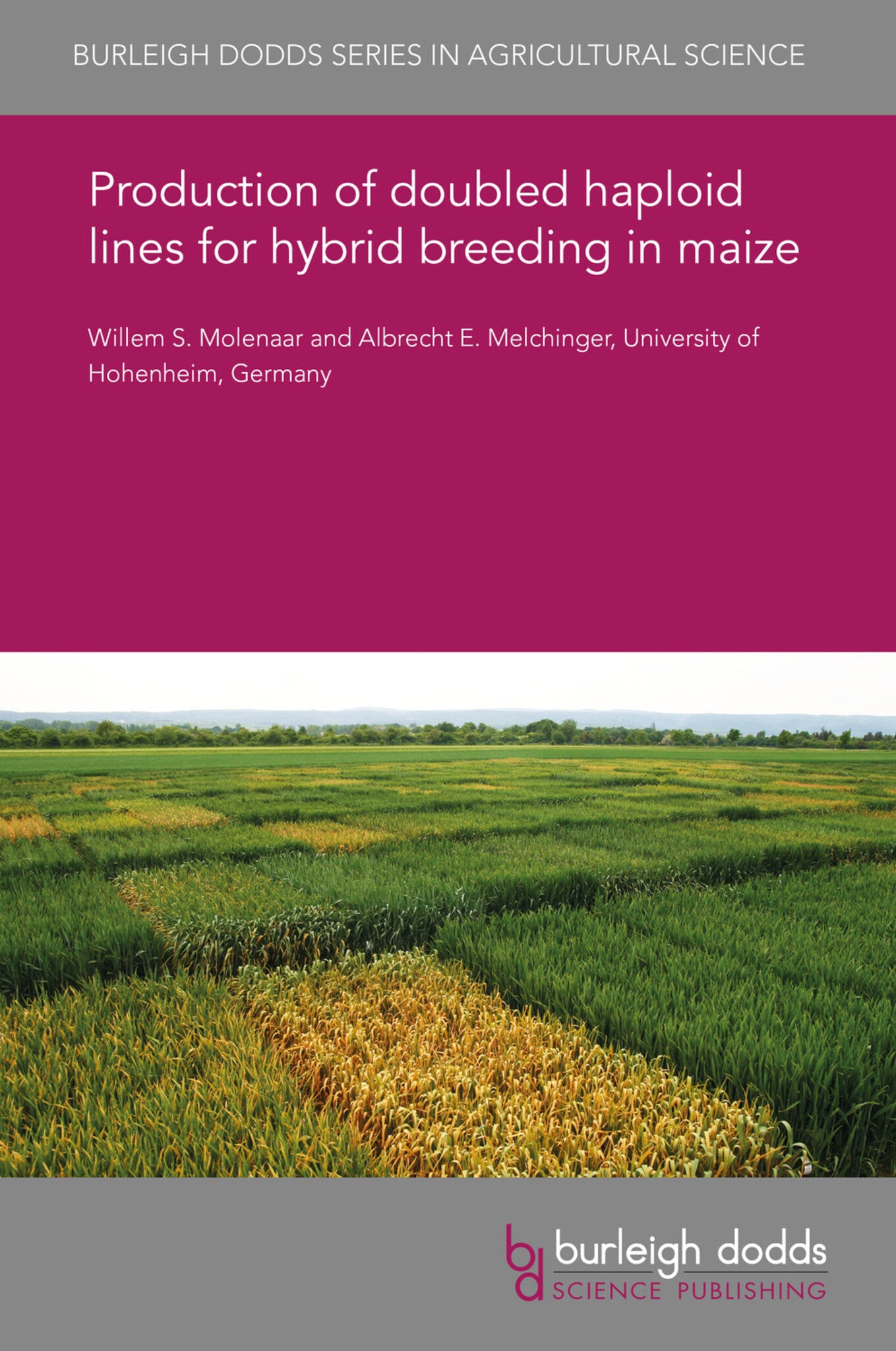We're sorry. An error has occurred
Please cancel or retry.
Production of doubled haploid lines for hybrid breeding in maize
Regular price
£25.00
Sale price
£25.00
Regular price
£25.00
Unit price
/
per
Sale
Sold out
Re-stocking soon
The production of genetically homozygous inbred lines is essential for hybrid maize breeding. There is a strong interest in the use of DH lines in research and maize breeding due to their many adva...
Read More

Some error occured while loading the Quick View. Please close the Quick View and try reloading the page.
Couldn't load pickup availability
- Format:
-
27 June 2019

The production of genetically homozygous inbred lines is essential for hybrid maize breeding. There is a strong interest in the use of DH lines in research and maize breeding due to their many advantages compared to inbred lines produced by the traditional method of recurrent selfing. This chapter describes the major steps in production of DH lines in maize and present current research, from the production of haploid seed to the harvest of DH seed. The chapter reviews recent findings concerning the genetics behind haploid induction and new and more efficient methods for identification of haploids. The chapter discusses chromosome doubling protocols as well as recent research on spontaneous chromosome doubling, which may have the potential to make DH production more efficient. Finally, the chapter considers practical aspects of the cultivation of plants derived from haploid seeds as well as applications and advantages of DH lines in maize breeding, and provides detailed guidance on further reading in this area.

Price: £25.00
Publisher: Burleigh Dodds Science Publishing
Imprint: Burleigh Dodds Science Publishing
Series: Burleigh Dodds Series in Agricultural Science
Publication Date:
27 June 2019
ISBN: 9781838798246
Format: eBook
BISACs:
TECHNOLOGY & ENGINEERING / Agriculture / Sustainable Agriculture, Agronomy and crop production, TECHNOLOGY & ENGINEERING / Agriculture / Agronomy / Crop Science, Sustainable agriculture

1 Introduction 2 Induction of haploids 3 Identification of haploids 4 Chromosome doubling 5 Deriving DH lines from D0 seedlings 6 Economics of DH production 7 Applications of DHs 8 Case study: conservation of maize genetic resources 9 Future trends and conclusion 10 Where to look for further information 11 Acknowledgments 12 References



